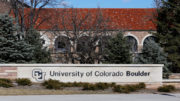By Jeffrey A. Roberts
CFOIC Executive Director
Complaints and disciplinary actions against public school bus drivers are not “personnel” records that must be kept confidential, an Arapahoe County District Court judge ruled late Wednesday.
Judge Phillip L. Douglass also determined that two Cherry Creek School District unions failed to show that school bus drivers have a legitimate expectation of privacy that would bar the release of the information to 9NEWS.
In denying the unions’ request for an injunction, Douglass relied on two Colorado Court of Appeals rulings that narrowly construe the definition of public employee personnel records exempt from disclosure under the Colorado Open Records Act (CORA).
 In 1999 and again this year, the Court of Appeals concluded that CORA’s personnel files exemption applies to information “of the same general nature” as an employee’s home address and other personal demographic data.
In 1999 and again this year, the Court of Appeals concluded that CORA’s personnel files exemption applies to information “of the same general nature” as an employee’s home address and other personal demographic data.
“This Court is obligated to follow binding precedent,” Douglass wrote. He concluded that school bus driver disciplinary records and community complaints don’t fit the Court of Appeals’ parameters for what is considered a public employee’s confidential personnel file.
Lawyers for the Cherry Creek School District claimed the law is unclear and that the case presented a “novel legal question.” Lawyers for the Cherry Creek Transportation Employees Association and the Cherry Creek Education Association argued that neither appellate ruling should apply because those cases involved records “substantially different” from the records requested by 9NEWS investigative reporter Kevin Vaughan for recent stories on school bus safety.
The 1999 decision, Daniels v. City of Commerce City, concerned records of sexual harassment, discrimination and retaliation. In that case, the Court of Appeals interpreted a key phrase in CORA’s personnel files definition – “information maintained because of the employer-employee relationship” – to mean information “of the same general nature as an employee’s home address and telephone number or personal financial information.”
The Court of Appeals applied the same interpretation in January, when it determined that records showing a public school teacher’s sick leave are not part of a teacher’s confidential personnel file.
The Daniels decision was “seriously flawed,” union lawyers contended. But Douglass refused to consider that argument.
“Whether rightly or wrongly decided, flawed, or otherwise, this Court does not second guess the binding judgments of the Court of Appeals,” he wrote. “The (unions) may raise their argument before the Court of Appeals, but this Court will not consider it.”
Douglass also wrote that he is “unwilling to announce across the board that all disciplinary records and all community complaints implicate a privacy interest” for public school bus drivers. The legislature, he noted, “has declared a strong and compelling interest in the production of records that are not personnel files.” Because bus driver disciplinary records are not personnel files, the unions “failed to establish a legitimate expectation of privacy.”
Media attorney Steve Zansberg, who is president of the Colorado Freedom of Information Coalition, argued the case on behalf of 9NEWS. The CFOIC intervened in the lawsuit on the side of the television station as did The Denver Post, KCNC-TV, KDVR-TV, KMGH-TV and the Associated Press.
It is likely the records won’t be released yet if the unions decide to appeal Douglass’ ruling.
Follow the Colorado Freedom of Information Coalition on Twitter @CoFOIC. Like CFOIC’s Facebook page. Do you appreciate the information and resources provided by CFOIC? Please consider making a tax-deductible donation.




